8. Tape (2001)
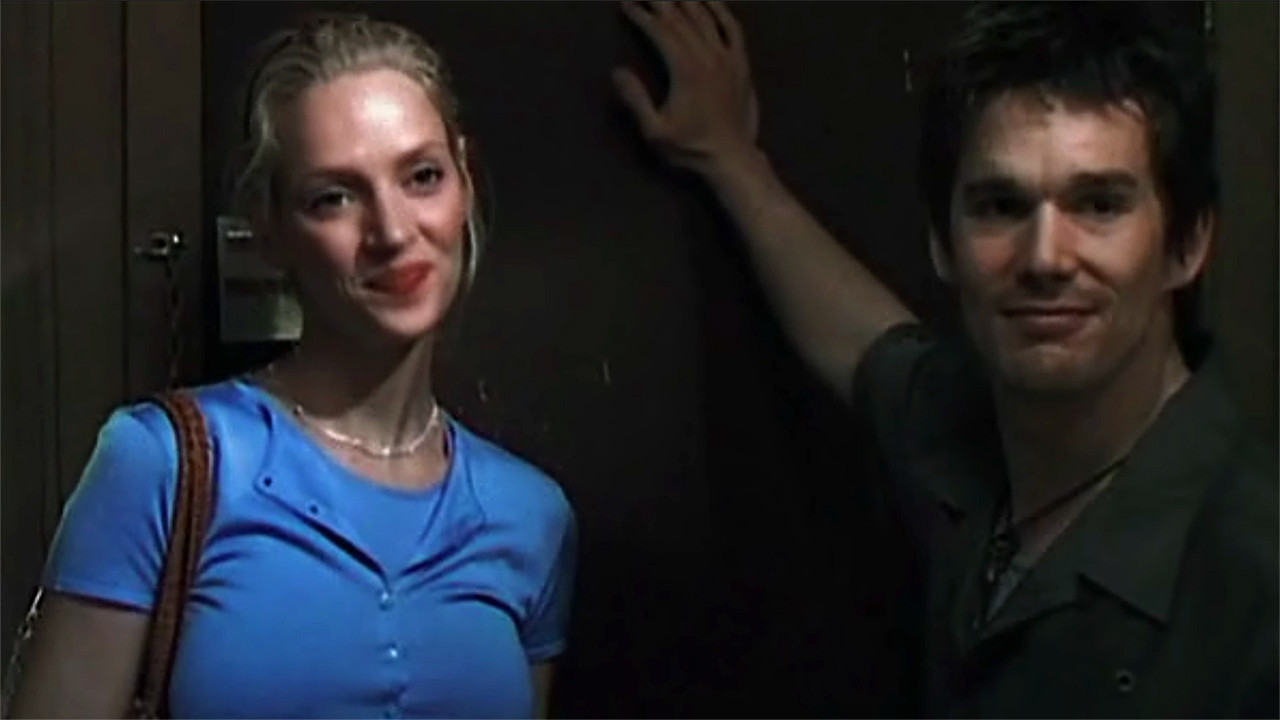
Never easy to adapt a play to cinema. You have to find the right cinematic language and since the setting will probably be set in the same places way too often, you have to find the right angles, the right beats, and make the right editing choices to make it all very engaging and engrossing. What else you need is the right actor for the right part, someone who knows the difference between play and film acting.
The movie takes place in a motel room when old college friends Vince and John meet up. John, a filmmaker, is in town for a film festival, and Vince just happens to be in the vicinity. As the film progresses, it turns into a psychological game between characters. Hawke is dynamite there and his performance is one of the main elements that elevates this to “cinema” rather than a “recorded play.” He’s also great with dialogues; they’re well-written and convincing enough, so that helps, but Hawke is the master of line delivery here. Someone like David Mamet can give Hawke the right role to show his skills with little more with playful dialogues. This is a movie with an insightful script and Hawke does justice to the material and brings his intense energy here.
7. Before the Devil Knows You’re Dead (2007)
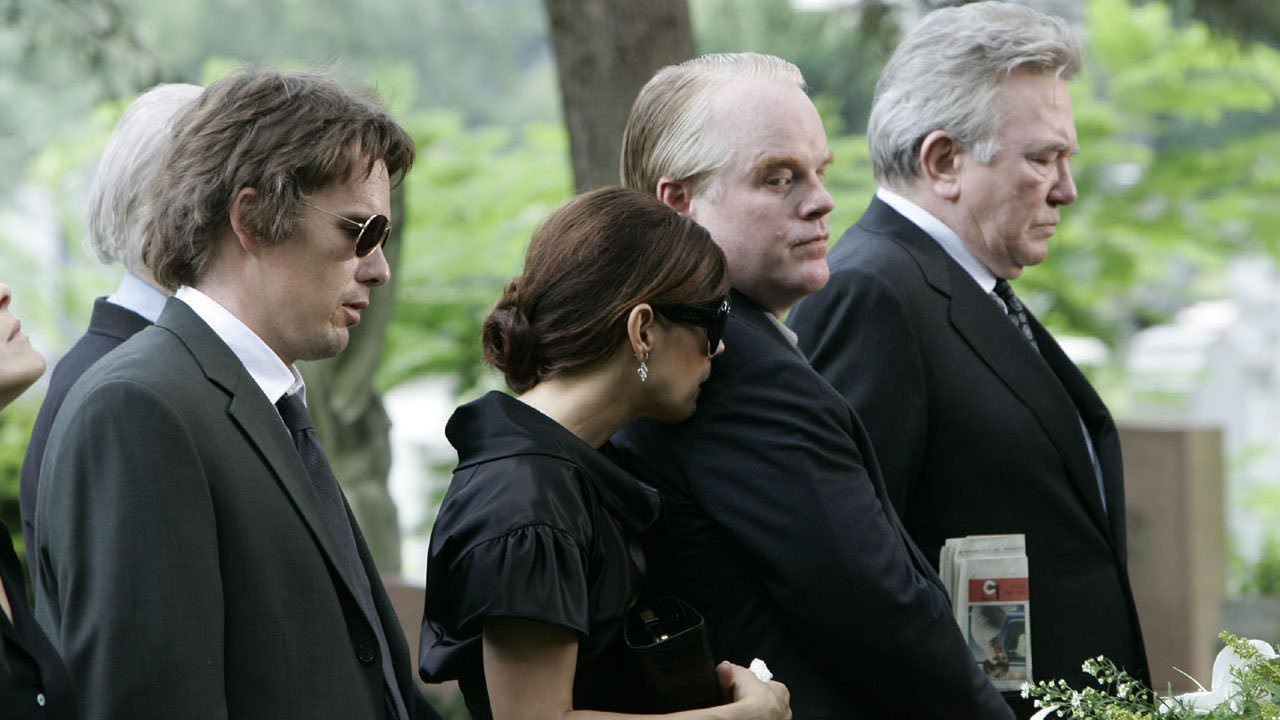
When you leave, you go on a high note. Sidney Lumet’s career is so prolific that you can find some turkeys here and there, but it’s remarkable because he’s made some absolute masterpieces as well. His last film is sharp, bleak, dark, gritty, suspenseful, masterfully shot and edited, and raises questions about human nature. Just what you expect from Lumet, a director who’s always praised to heavens for his work with actors.
Indeed, the cast is something special here. Philip Seymour Hoffman, Marisa Tomei and Albert Finney all get some excellent work to do in other major parts, and Hawke shines here as well. Hoffman and Hawke play two financially strapped brothers who think they have a solution to their problems when they organize a robbery of their parents’ jewelry story but as you can expect from such stories, things don’t go as well as expected. His character has an affair with Tomei, but he somehow manages to portray his inner vulnerability and weaknesses incredibly well, once again showing what a special actor he really is. This film was another important experience for Hawke since he worked opposite all of these great actors and one of them – Mr. Hoffman – has sadly passed away. When he was on Charlie Rose, Hawke was asked about how he feels about his sad passing and he gave a beautiful answer that you can look up on the internet.
6. Gattaca (1997)
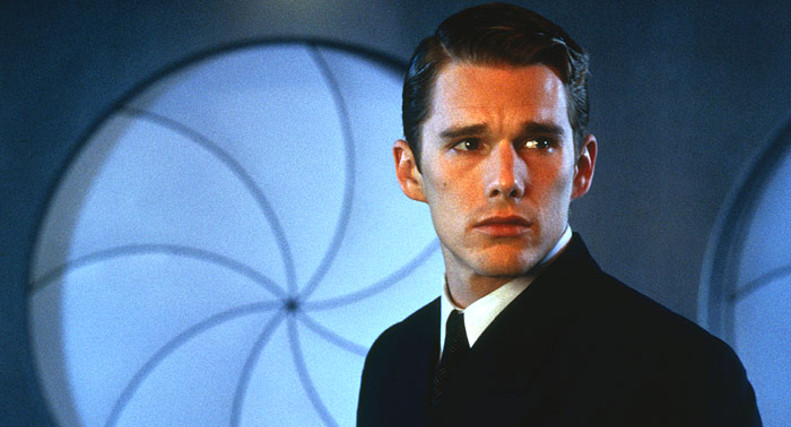
Are we too close to making Gattaca a reality? Who knows? One thing for sure, Andrew Niccol’s “Gattaca” is one of the most intelligent, unique, and impressive science-fiction films of the ‘90s. By Niccol’s words, it was a mistake to make a movie like this as a feature film debut. It tanked at the box office, but at least in the later years, it got itself a lot of fans. The film explores themes of genetic manipulation, freedom of self-determination, and eugenics – the practice of advocating for the genetic improvement of the human species through selective reproduction.
Hawke plays the lead character, who was conceived outside of the eugenics program and struggles to overcome genetic discrimination to realize his dream of going into space. Certainly a premise that you don’t often see in movies, but Hawke had the ability to pick great sci-fi projects even in the mid-90s. Hawke again portrays the inner conflict and the pain his character goes through rather effectively, and he’s a perfect leading man for a part like this; it’s easy to root for him and understand him. Hawke is an actor who brings so much depth and humanity to his characters and his performance in “Gattaca” is more good proof of that.
5. Boyhood (2004)
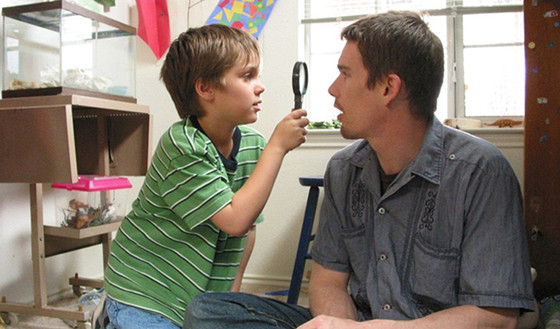
His last Oscar nomination came with “Boyhood,” directed by his frequent collaborator and friend Richard Linklater. Filmed from 2001 to 2013, the film depicts the childhood and adolescence of Mason from ages six to 18 as he grows up in Texas with divorced parents, portrayed by Patricia Arquette and Ethan Hawke.
Now you may or may not be impressed by the film, you may think that critics “overrated” it because of the unusual way of how it was made, but one thing is for sure – when you work with an unfinished script, and you keep coming back to the same character every year in a storyline where you’re not even too sure where it goes, it demands a totally different kind of talent. In fact, when you watch all of the segments closely with all of the actors, one can make an argument that Hawke is the one who is the most effective in every part and age of the film. Certainly, his friendship with Linklater helps to the process as well, since he and the other actors were allowed to participate in the writing process by incorporating their life experiences into their characters’ stories. One can’t deny that it’s a challenging role and project to take, but it worked out well.
4. Training Day (2001)
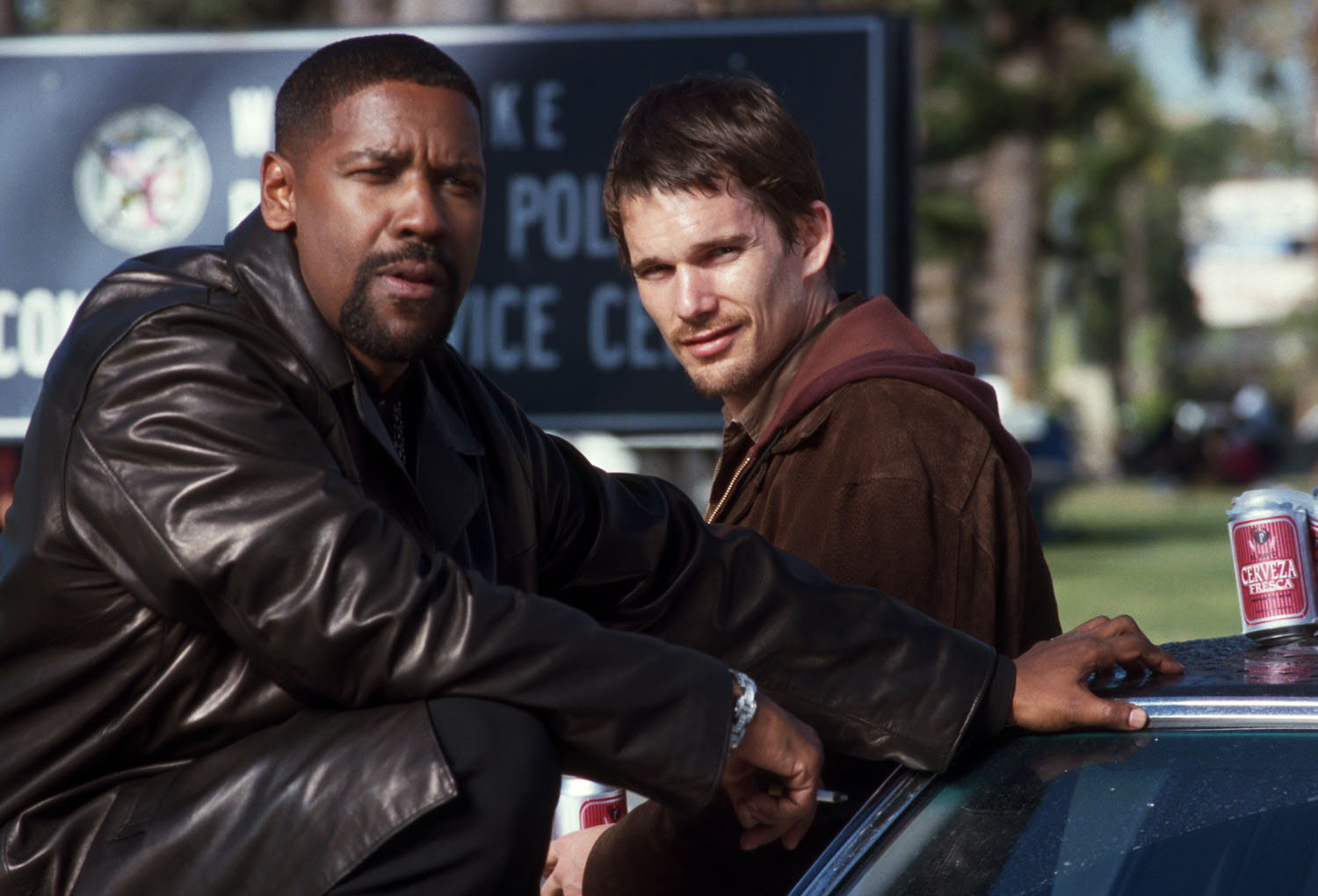
Denzel Washington’s performance earned all its deserved praise, but don’t let his amazing, showy role make you forget you that Hawke was very, very good as well and earned a well-deserved Oscar nomination – because once again, the acting is not just about talking or shouting too much. Oliver Stone once said he cast Kevin Costner for “JFK” because he’s a “good listener.”
Hawke is a good listener as well; he’s the witness here who in the first half tries to understand what is going on, what kind of situation he ended up in, and what kind of a person he’s dealing with. He’s an observer and he’s doing it excellently; you can see he’s shy, uncertain, and somewhat uncomfortable in every moment, but when he gets courage and takes action, you believe him as well.
In a movie like this, your performance must complete the other performance. You should work together as one. Think of “Rain Man”: Dustin Hoffman had the seemingly hardest part, but Tom Cruise’s part was equally hard because he had to deal with an unpredictable man and had to show it in even small gestures and nuances. Hawke does something similar here and he’s brilliant. It’s also his first Oscar nomination.
3. The Before Trilogy (1995, 2004, 2013)
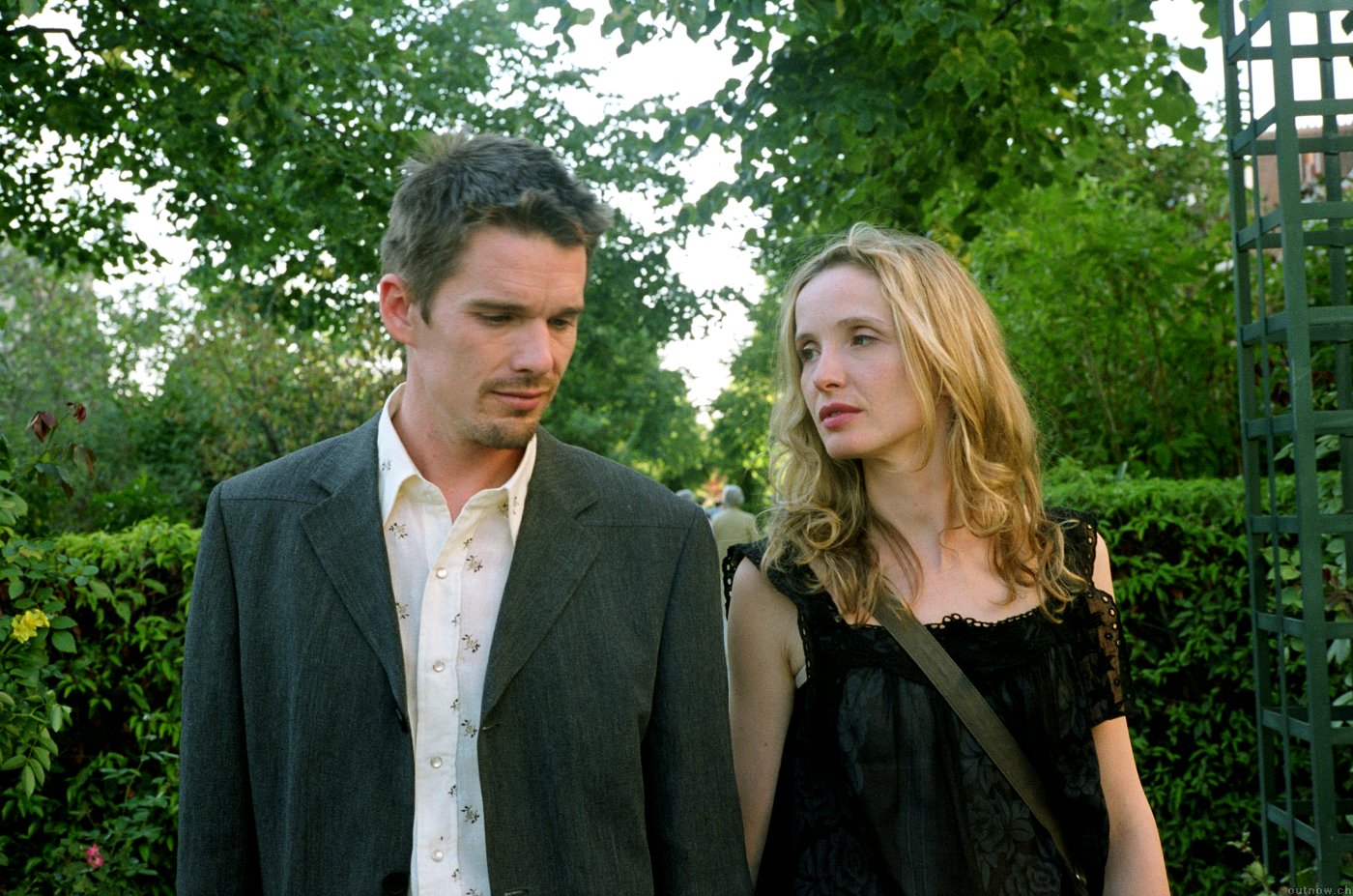
It’s hard to find a word that’s not already been said about these films. The first film was almost a sensation among the film community and cinephiles; you can argue that it created a kind of a sub-genre in romance films where two people meet and just start to talk and get to know each other. There have been good examples in the genre, but it’s hard to catch the quality of the “Before” films because the characters are beautifully, sensitively written, and the trio of director/writer Richard Linklater and his lead performers Ethan Hawke and Julie Delpy do wonders with the material. Hawke and Delpy got credited as co-writer in the second and third films of the trilogy and received well-deserved Oscar nominations.
Hawke creates a full character here; in each film he reveals something more about his character’s personality and since they all are set in different times, you also get the sense of how much time and the experiences have changed him and Delpy’s character. It’s an ultimate Ethan Hawke performance, in all three films. The sensitive, intelligent, charismatic, versatile actor who gives a life to characters that is easy to like and follow. The actor whom we love to see just talk.
2. Born To Be Blue (2015)
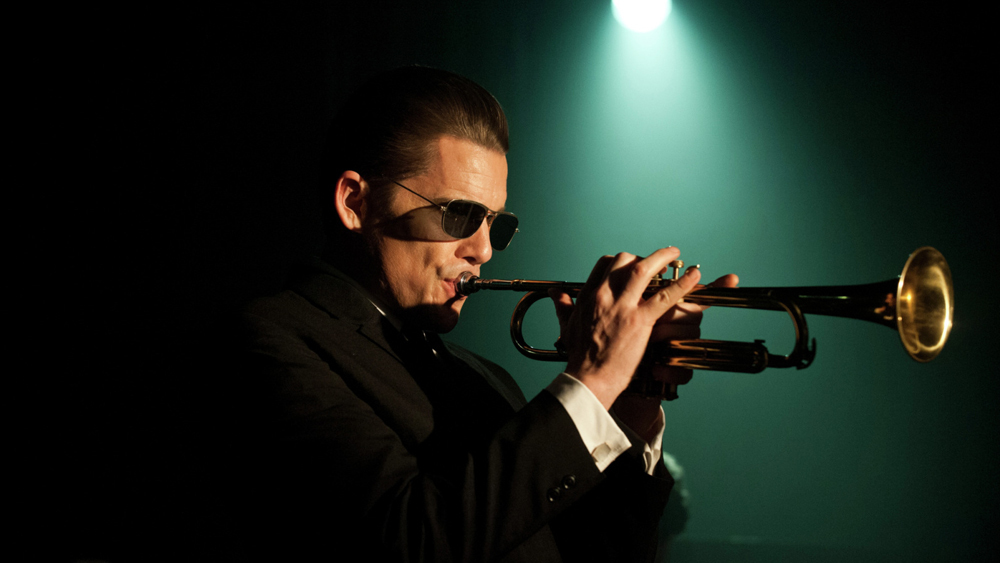
Tesla is not the only real-life figure Hawke has portrayed – he also had roles like “Stockholm” and yes, “Born to be Blue.” Definitely one of the finest jazz films of the last decade, “Born to be Blue” sees Hawke as Chet Baker, an American jazz trumpeter and vocalist. Baker was known for major innovations within the cool jazz subgenre leading him to be nicknamed the “prince of cool.” Hawke has a slight resemblance to him and he gets his voice; though he’s not here to just imitate, he’s here to create an actual fully-developed character.
By subtly conveying a mix of frailty and arrogance, Hawke’s performance becomes fascinating to watch. The acting is never how you deliver your lines, it’s also about how you carry yourself through the film. Just the way Hawke stands, how he behaves, how his eyes relax say too much about his character’s state of mind and physical situation. That’s one of the things that always made Hawke stand out, because he doesn’t phone it in. He takes his job seriously and he’s intelligent enough to understand his character. He brings charm to the part, but the darker sides of Baker’s personality simmer in the background as well. Just a great work all around that also shows his leading man charisma, and how he’s able to carry a movie on his shoulders.
1. First Reformed (2017)
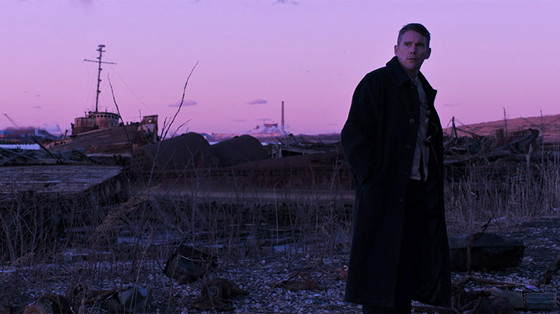
In his interviews, Hawke claims that this is the best written film he’s been in, and the most rich, most complex character. It’s hard to disagree with him. It’s crazy to think he didn’t get an Oscar nomination for his master work here. Hawke has portrayed characters facing moral dilemmas before, such as in “Good Kill,” but here he portrays a man who is someone else. He plays a priest full of guilt, who’s suffering. He tries to end all of his pain in some way but he doesn’t know how to do it. He’s lost, he wants to feel important in a way that maybe other Paul Schrader characters – the one played by Robert De Niro and Willem Dafoe in “Taxi Driver” and “Light Sleeper,” respectively – wanted. Then he finds a cause, he follows it or he tries to.
In each moment, Hawke opens up about something else about his character. We feel sorry for him; sometimes we’re shocked by him and sometimes we’re angered by him but in everything he does, we understand him. Watching him just sitting around and drinking, or seeing him watching the choir or him arguing with people over things. No matter if he’s silent or talking, every single acting choice Hawke makes here is successful; it serves the character, the story and the film. He masterfully conveys both the selfishness and the deep suffering of people who just can’t let go of their own pain.
It’s one of the greatest performances of 21st century cinema and is arguably the biggest highlight of his acting career. It’s also great that his best performance is something so recent because it shows that Hawke never stops surprising us.
Honorable Mentions: some films already were mentioned. There are some unlikable characters (“Maudie,” “The Phenom”); there are characters that makes you wonder how Woody Allen never cast him in any of his films (“Maggie’s Plan”); and other impressive genre film performances (“Sinister,” “Regression”). What’s not covered on the list is that he’s also a great, underappreciated western actor (“In a Valley of Violence,” “The Magnificent Seven,” “The Newton Boys”). As usual, he’s got some exciting projects coming up, including “The Northman.” It seems he’ll keep on surprising the audiences.